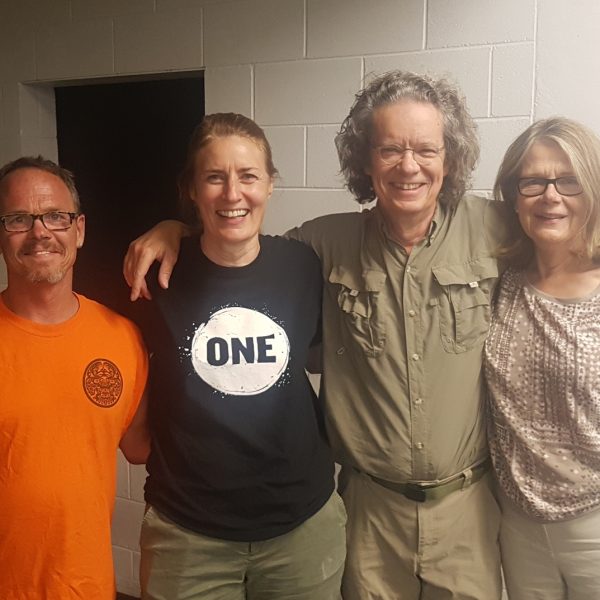As wildfires erupted across BC last week, the Thompson Nicola Regional District (TNRD), BC Emergency Social Services (ESS) and several other agencies were called upon to coordinate disaster response, register evacuees and provide them with lodging and other services.
In the earliest days of the wildfires, TRU stepped up to provide operations space in Old Main, as well as food and accommodations in TRU Residence and the Gym for registered evacuees. And while TRU is not orchestrating evacuation activity or support services; administration, faculty and staff came together in a pan-institutional effort to help our neighbouring communities in need.
In the face of emergency it’s truly been a team effort as administration, faculty and staff across all departments have stepped in to help. Administration has been working around the clock to provide support, communications, services, on-call staff and everything in between.
According to Director of Ancilliary Services Glen Read, TRU Residence and Conference Centre has been providing lodging and meeting space to debrief around 80 evacuees and 160 fire fighters who are coming in and out on rotation. Staff have been working overtime to provide three meals a day, including hot dinner, coffee and water for all of the evacuees on-campus and the fire fighters.
In Old Main, evacuees were registering with ESS in order to access services, as well as with the Red Cross. While he ESS Reception Centre has since been moved to Sandman Centre on Lorne Street to accommodate the influx of evacuees, TRU continues to provide group lodging for evacuees and accommodation for firefighters.
Around 25 faculty members from the School of Nursing (SoN) have been working rotating shifts in group lodging 24/7 to act as a first line of assessment.
“I am extremely proud of the level of support provided by School of Nursing faculty,” said Dean of the SoN, Donna Murnaghan.
Murnaghan, who has worked multiple 14-hour rotations says it has been a complete team effort at this point, “we have mobilized an impressive volunteer group who have been providing 24/7 health care coverage to ensure our group housing evacuees have their essential needs met. We are able to do timely assessments, collaborate across other departments and agencies, navigate through the complex systems required because of residents being evacuated out of their homes, set up treatment plans as appropriate and seek appropriate supports through the TNRD and the Red Cross.”
Facilities has also been working overtime to provide shuttles on demand for immobile, elderly and frail evacuees, providing shuttles to Walmart as well as additional staff over the weekend to assist with mobility. They have also been monitoring air quality on-campus and providing resources to aid with the increased need for garbage removal.

It’s a group effort from administration, faculty and staff in the face of emergency.
Animal Health Technology is providing food, shelter and exercise for animals and is currently at capacity. They have also been helping to coordinate off-campus lodging for pets and many TRU staff have stepped in to assist as well.
Aboriginal services have opened the doors to support those in need, space in the Gathering place for Elders, counselling and other resources for those coming in from neighbouring communities. Director of Aboriginal Services, Paul Michel has been keeping in direct contact with Secwepmc bands in the area, particularly concerned with Ashcroft bands.
Open Learning employees have been fielding inquiries from OL students regarding Canada Post delays and making allowances for students waiting on textbooks, registrations, exams, etc. by extending deadlines for students, deferring exams, and waiving some fees if needed. Students have access to a toll free number to get clarification and the number is monitored on a regular basis. If you are an Open Learning student who has been affected by the wildfires and are concerned about your studies, don’t hesitate to get in touch with us. We’re here to support you. Send us an email or phone 1-800-663-9711.
And, while so many people have been working to make sure the needs of evacuees are being met, the Safety and Risk Management department has been working around the clock to make sure health and safety of students, staff and evacuees is a number one priority.
“What’s really striking me is the graciousness of the guests and the people who are coming here to register and thanking us for the work we are doing,” said Associate Director of the Office of Safety & Emergency Management, Stacey Jyrkkänen.
“I look at them and say, hey we’re Canadians, it’s what we do, we take care of each other.”
Information on the wildfires situation and emergency reception centres: www.bcwildfire.ca

